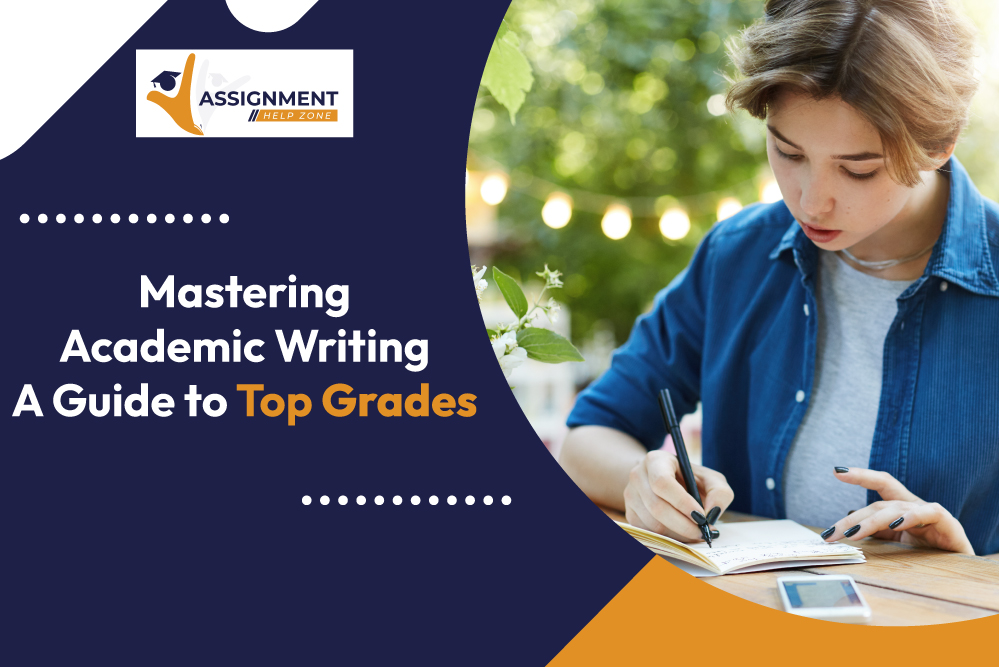Writing academic papers is usually a challenge for many students. The expectations to make good, informative, and even entertaining essays, dissertations or research papers can be extremely high. But for you to excel in academic writing, you can always seek the right strategies and get professional guidance from UK assignment writing services.
With the help of this guide, you will receive various recommendations and useful advice on how to improve your writing abilities. It could span selecting the right topics to write about, writing an argument, and anything in-between in the process. Furthermore, the analysis will dwell on the relations between available tools and resources and your performance.
So, let me help you open the dressing and reveal the potential of an academic writer in you.
Choosing Winning Topics
Choosing a topic is the key to writing a good academic paper that meets all the set requirements. The choice of a good topic not only attracts attention but also forms the basis upon which a good and insightful piece of writing is made.
Relevance: Ensure your topic aligns with the assignment requirements and your academic field.
Specificity: Select a specific idea for your paper as opposed to an area of interest. This makes way for a detailed investigation.
Originality: Try to use new aspects in approaching your chosen topic.
Research Feasibility: Factor in the type of sources available and the depth of information that you can find.
Incorporating these tips will help you in the selection of exciting and effective topics for the presentation of your knowledge.

Crafting Compelling Essays
After deciding on an interesting topic, the next step in the procedure is the preparation of an organized and convincing narrative. Therefore, an essay must present your opinion and influence the readers in the right manner.
The Foundation
The first secret of a good essay is in its organization. Consider the following essential components:
Introduction: The first step is to grab the reader’s attention through an attention-grabbing introduction. At the beginning of the essay, write its thesis—this is the argument that you are going to make.
Body Paragraphs: It is good to ensure that each of the body paragraphs should have one main idea that will develop the thesis statement. It is also important that you support your arguments with evidence, examples, and further analysis.
Conclusion: Restate your main ideas and thesis in a concise and understandable way. Try suggesting potential implications of your findings or suggestions on the value of the conclusions made.
Developing Strong Arguments
If you want to write a persuasive essay, you have to make points well backed up. Consider the following tips:
Clarity and Coherence: It is also important to be very specific and have great proof to support your claim and make sure the written work is very straightforward and concise.
Evidence: Use facts, data, arguments given by professionals, or cases to back all the propositions stated in the paper.
Analysis: Do not merely state any information, signify its role in advancing the case for your thesis.
Counter Arguments: It is useful to enumerate potential counterarguments that are expected to clearly emphasize the absence of certain factors that would allow people to avoid the negative consequences of their actions.
Mastering the Art of Sourcing
Good research forms the basis of any good academic paper, as is evidenced by the conventional saying, ‘Good research leads to good writing’. To support the proposed line of reasoning and increase effective work, you must properly collect and integrate citations.
The Use of Credible Reference
Credibility: Be very selective so that you are getting information from reliable sources or experts.
Relevance: Choose sources that are relevant to the question or thesis you are exploring in the study.
Variety: A good research client should provide papers from scholarly journals, books, and we’ll-credential online databases.
Effective Source Integration
Summarize: Briefly state the topic and the main ideas found in a certain source.
Paraphrase: Paraphrase the material of the author of the text.
Quote: Quotations must be used sparingly and only when it’s impossible to put the material in other words.
Citation: Use proper citations of all our sources based on the agreed format of citations (APA, MLA, Chicago, etc.).
Avoiding Plagiarism
Original Thought: build a thesis by cultivating original ideas and opinions.
Proper Citation: You should always acknowledge the authors of the work by citing them whenever you are using their work.
Paraphrasing and Summarizing: Summarize actual data and convert it into brief yet informative data.
Planning for Success
It is also equally important since it is the basis of any academic exercise that shall seek success. You may also save time by devoting an hour to the proper structuring of thoughts and concept selection and improve the overall quality of the produced task dramatically.
The Power of Outlining
Structure: This helps you in planning the entire essay and also to have a logical flow of ideas to enable you to produce a good essay.
Organization: Systematically organize your ideas.
Time Management: Breakdown your writing process in manageable steps.
Utilizing Time Management Techniques
Commodore Technique: Punctual work in organized 25 minutes with small breaks.
Time Blocking: Reserve certain time blocks of the day for specific tasks.
Prioritization: Focus on the priority activities of the most significance.
Utilizing Available Tools
In today’s generation, a variety of resources and assistance are available for students, especially in their academic goals. By using these tools, it is possible to enhance the process of writing and the level of productivity greatly.
AI Writing Assistants
Academic writing tools have been popular in the recent past, the most common one being the AI writing assistants.
Brainstorming: Brainstorm and discover more than one view on the subject matter at hand.
Outlining: Develop an outline of how to go about writing your essay.
Proofreading: Determine grammatical mistakes, punctuation errors, and misspellings.
Style Enhancement: Correct grammar, particularly for the formation of actual well-articulated sentences.
Writing and Grammar Checkers
Make writing and grammar checkers your friends for whenever you are in doubt about the best ways to write good sentences. Do not forget that these tools are far from being perfect and must be combined with proofreading of the texts.
If you get to use the available tools well, it becomes easier to write with greater elegance, and effectiveness and within a shorter period.
When to seek professional help
As much as students need to be independent learners and work on their assignments independently there are times when a person should seek professional help. This may arise the question of “how to get help with assignment writing UK?” below are some possible aspects you may consider.
Identifying When to Go for Assistance
Overwhelming Workload: When there are many writing tasks, part-time jobs, or other obligations – it is easier to receive help from professionals.
Complex Research Topics: You can hire professional writers and get more advanced details of the topics that may be of high specialty or complicated to understand by many people.
Language Barriers: If English is not your native language, this can be a valid option to avoid language issues influencing writing a great assignment
Learning Disabilities: Students with learning disabilities may require the help of a professional to meet the requirements of the classwork
Choosing a Reputable Service
Research: Among many options; it is essential to extensively research available writing services.
Reviews: You can always rely on sources that other users have left their opinions about the particular service.
Plagiarism Check: Make sure that the service will provide nothing but original content.
Customer Support: Evaluate the quality of business customer relations.
Maintaining Academic Integrity
Original Work: Cite the professional help as a reference and do not copy what they have written as your work.
Understanding: Educate yourself on the provided work so that you enhance your performance.
Proper Citation: Provide any concept or data taken from the professional writer through a citation.


